Warren Buffett’s 12 Largest Current Stock Bets
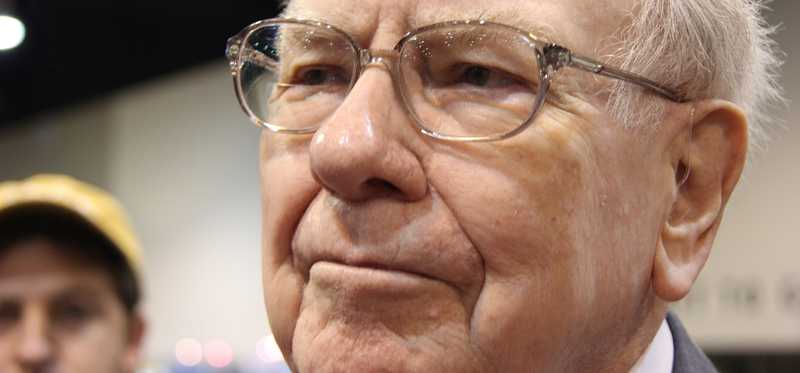
Warren Buffett’s 12 Largest Current Stock Bets
When Buffett speaks, Wall Street listens
When the history books are written, Warren Buffett will likely go down as the greatest investor of our time. In a little more than six decades, the “Oracle of Omaha,” as he’s come to be known, has transformed $10,000 in seed capital into a net worth of about $80 billion. And take note, this figure could be tens of billions of dollars higher, if not for Buffett’s generous charitable giving throughout the years.
As CEO of Berkshire Hathaway (NYSE: BRK-A)(NYSE: BRK-B), Buffett has helped guide the acquisition of approximately five dozen businesses from a host of sectors. Even more intriguing, though, has been Buffett’s prowess for investing in, not necessarily acquiring, great businesses.
Today, Buffett and his team at Berkshire Hathaway oversee an investment portfolio tallying $215 billion and spanning 47 securities. We know this because Berkshire Hathaway is required to file Form 13F with the Securities and Exchange Commission no later than 45 days after the end of each quarter. This form discloses the company’s stock holdings, allowing Wall Street and investors to see what the world’s most successful investor has been up to over the previous quarter.
Suffice it to say, investors love to emulate, if not mirror, Buffett’s trading activity and holdings. Today, we’ll take a closer look at Buffett’s 12 largest current holdings, which make up a whopping 85% of the aforementioned $215 billion in current portfolio market value.
Previous
Next

1. Apple: $54.1 billion in market value
Although Buffett has generally avoided technology stocks, Apple (Nasdaq: AAPL), the kingpin of innovation, represents a quarter of Berkshire’s investment portfolio. It’s certainly hard to argue with Buffett’s affection for Apple considering that it’s consistently raised its annual dividend since launching a regularly quarterly payout in 2012, and has aggressively repurchased its own stock, reducing its outstanding share count by 23% over the trailing five-year period. A lower share count can help to boost earnings per share, making a company more attractive from a fundamental standpoint.
At this point in its evolution, Apple can count on strong pricing power, thanks to its well-known brand, and consistent cash flow from its iPhone, iPad, and Macbook lines. The future, though, rests with services, including steaming TV, music, and much more. Apple’s innovation cannot be discounted.
Previous
Next
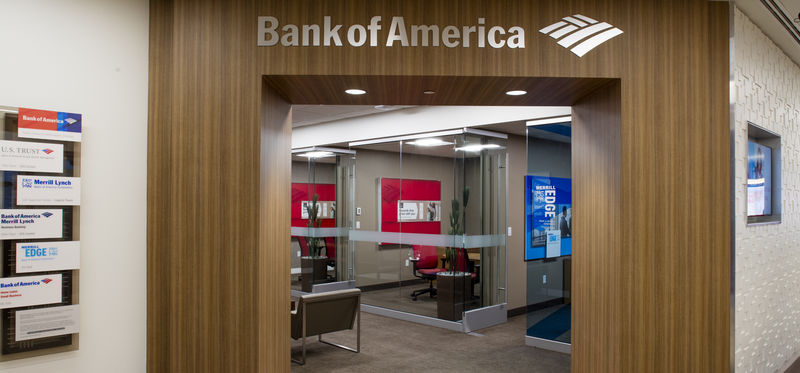
2. Bank of America: $27.9 billion
A common theme you’ll find is that Buffett loves financials, with Bank of America (NYSE: BAC) topping the list. B of A has been a holding (initially in preferred shares) since 2011, with Berkshire Hathaway adding more than 53 million additional shares just since the end of March. With 950 million shares owned, Bank of America makes up almost 13% of Buffett’s investment portfolio.
Following the Great Recession, Bank of America has done a lot of cleaning up its act. Tighter internal controls have put major litigation costs in the rearview mirror, while operating expenses have been steadily reduced, allowing more revenue to flow straight to its bottom line. B of A has also been busy catering to its future customers by reducing physical branch locations and promoting mobile banking solutions. While net interest income could take a hit if the Federal Reserve continues to lower interest rates, there’s little doubting that Bank of America is in better shape now than it’s been in a long time.
Previous
Next

3. Coca-Cola: $21.8 billion
One of the longest-tenured holdings you’ll find in Buffett’s portfolio is consumer staple Coca-Cola (NYSE: KO), which was first bought back in 1988. The beauty of a brand-name company like Coca-Cola is that its business typically sees little in the way of issues when the U.S. or global economy contract. By selling well-known branded beverages in all but one country worldwide (North Korea), Coca-Cola brings geographic advantages, as well as strong pricing power, to the table for investors.
Coca-Cola also happens to be one Buffett’s strongest income generators. Having paid a dividend since 1920, Coca-Cola is among a truly elite group of dividend stocks known as Dividend Aristocrats. These are companies that have raised their aggregate annual payout for a minimum of 25 consecutive years. In Coca-Cola’s case, it’s done so for 55 straight years, and is expected to provide Berkshire Hathaway with $640 million in dividend income in 2019.
Previous
Next
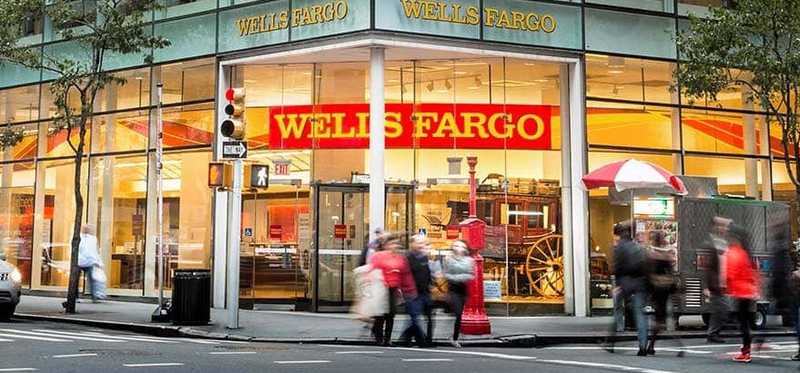
4. Wells Fargo: $19.8 billion
Like Coca-Cola, Wells Fargo (NYSE: WFC) has been a staple holding for Buffett for a long time -- 30 years to be precise. Buffett has an affinity for investing in brand-name money center banks because their performance is usually tied to that of the U.S. economy; and the U.S. economy spends far more time expanding than contracting. This makes large banks like Wells Fargo money-making machines. For quite some time, Wells Fargo’s return on assets has been among the best of the big banks, and it’s had little issue attracting a more affluent (and higher margin) clientele.
Then again, Wells Fargo has also been one of Berkshire’s biggest drags in recent years. Though it’s been an incredible long-term investment for Buffett, the revelation that Wells Fargo opened more than 3.5 million fake accounts for clients without their knowledge has compromised trust in the bank and aided in pushing its stock down 10% over the trailing five-year period. Thankfully, Wells Fargo’s robust 4.2% annual yield is inspiring patience with investors as it works toward rebuilding trust with its customers.
Previous
Next

5. American Express: $17.8 billion
Surprise! It’s another financial. In fact, you’ll find that seven of Buffett’s top-12 investments by dollar amount are financials.
What makes American Express (NYSE: AXP) such an intriguing pick for Buffett is the company’s ability to “double-dip” during periods of economic expansion. First, AmEx allows merchants to process transactions on its network, thereby collecting a fee for providing this service. Secondly, American Express has the ability to charge interest, late fees, and/or annual fees to its cardholders, either for having an AmEx card, or possibly for carrying a revolving balance that bears interest. As long as the U.S. and global economy are expanding, American Express stands to benefit numerous ways.
Similar to Wells Fargo, American Express also does a bang-up job of courting well-to-do clients. More affluent cardholders are less perturbed by fluctuations in the U.S. and global economy, making AmEx less susceptible to minor contractions in economic growth.
Previous
Next

6. Kraft Heinz: $9.4 billion
Despite being one of Buffett’s largest holdings, Kraft Heinz (Nasdaq: KHC) has been far from a top contributor, with year-to-date losses of close to 35%. Earlier this year, the well-known snack and beverage giant wound up writing down more than $15 billion worth of aggregate value from a number of its top-tier brands. Coupled with the $36 billion in goodwill and $29.8 billion in debt the company ended its most recent quarter with, it’s apparent that Kraft’s problems are far from an easy fix.
Making matters worse, Berkshire Hathaway appears somewhat stuck in its position as Kraft Heinz’s largest stakeholder. With 26.7% ownership in the company, Buffett has stated that he has no intention of moving out of the position. That’s likely because any attempt to do so would put immense pressure on Kraft Heinz’s already depressed stock. Though Kraft is generating healthy dividend income for Buffett for the time being, it’s been a rare dud for the Oracle of Omaha.
Previous
Next
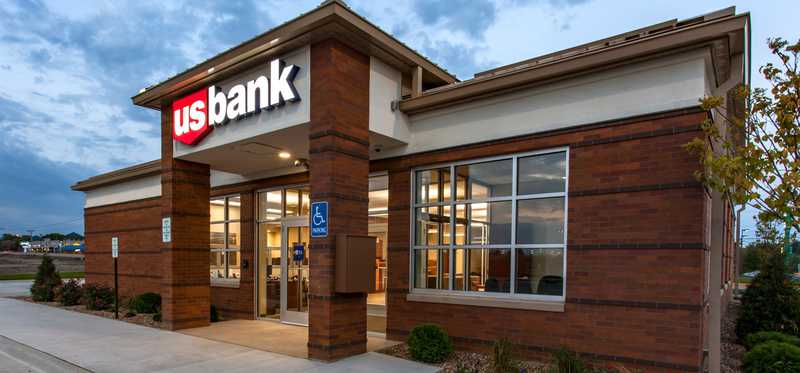
7. U.S. Bancorp: $7.4 billion
Buffett’s seventh-largest stock bet is on U.S. Bancorp (NYSE: USB), a large-cap money center bank he’s added to from time to time over the past 13 years. U.S. Bancorp certainly trades a premium relative to most banks, but has consistently delivered a superior return on assets, thereby earning its premium valuation.
Unlike most banks, U.S. Bancorp stuck to the basics of focusing on loan and deposit growth during the Great Recession, and avoided being lured in by riskier derivatives that wound up sacking a number of larger financial institutions. This prudent growth strategy that focuses on the bread-and-butter of banking has played a big role in U.S. Bancorp’s success.
Further, U.S. Bancorp isn’t considered to be a globally systemic important bank, despite its $87 billion market cap and the $345.2 billion in average total deposits it ended the second quarter with. This means it escapes the stringent capital ratio requirements set by the central bank, giving U.S. Bancorp more of a runway to grow by putting its capital to work.
Previous
Next
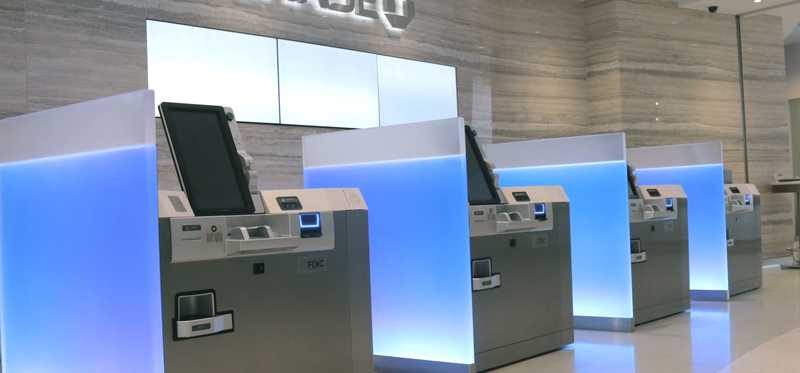
8. JPMorgan Chase: $7 billion
Of Buffett’s largest holdings, money center bank JPMorgan Chase (NYSE: JPM) is among the newest additions, with the Oracle of Omaha opening the position during the third quarter of 2018.
In recent quarters, JPMorgan has truly been at the top of its game. Over the trailing 12-month period, JPMorgan Chase’s return on equity (13.2%) and return on assets (1.29%) are either the best, or tied for the best, among the major money center banks in the United States. Plus, since JPMorgan Chase is a giant ($365 billion market cap), Berkshire can sink its teeth in and move the needle, so to speak, without having to worry about crossing above a 10% ownership stake.
Buffett loves banks because they’re money-making machines, and JPMorgan Chase has been steady as a rock of late.
Previous
Next
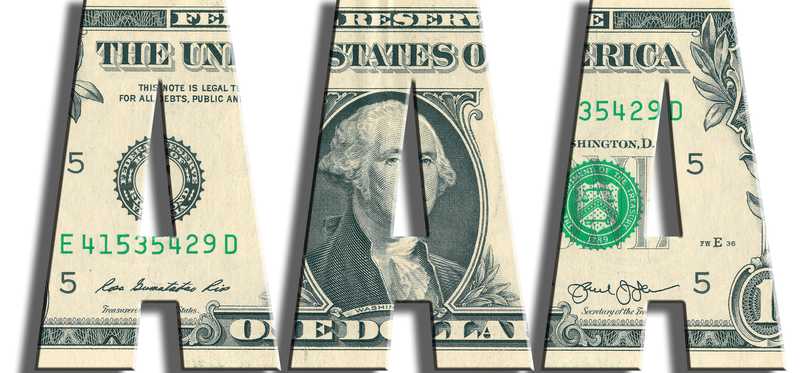
9. Moody’s: $5.2 billion
Analytics and investor services giant Moody’s (NYSE: MCO) is Buffett’s ninth-biggest bet, and also one of Berkshire’s top-performers in 2019. Shares of the company, which Berkshire has held for 19 years and counting, are up better than 50% year-to-date, netting Buffett a dividend-inclusive return of more than $1.8 billion thus far this year.
The recent surge in Moody’s shares is attributable to better-than-expected operating results. Despite modest sales weakness in the company’s largest revenue generator, investor services, the company’s analytics division continues to grow by a double-digit rate. Both acquisitive and organic growth seem to be doing the trick for Moody’s, and have played a key role in lifting the company’s profit outlook for 2019.
ALSO READ: Almost Half of Warren Buffett's Stock Portfolio Is in This Industry
Previous
Next

10. Delta Air Lines: $4.2 billion
One of the more head-scratching positions in Buffett’s portfolio is his 10th-largest: Delta Air Lines (NYSE: DAL). Buffett has traditionally avoided businesses that require a lot of upfront capital to generate minimal margins, and that’s typically the hallmark of the airline industry.
Yet, Berkshire Hathaway began accumulating shares of Delta Air Lines during the third quarter of 2016, which should give investors a clue as to what Buffett was thinking. This was a time when the price of crude oil was severely depressed and had, for a brief time, dipped below $30 a barrel during the first quarter of 2016. Although lower crude prices did sap some of the pricing power away from airlines, the cost of jet fuel began to plummet, pumping up margins for airlines like Delta.
The big question going forward is whether Buffett will hang onto Delta, a company with more than $15 billion in net debt, with the prospects of slowing growth in the U.S. potentially on the horizon. It’s very possible Berkshire reduces its position in Delta, and other airlines, in the foreseeable future.
Previous
Next

11. Goldman Sachs: $4 billion
Similar to Buffett’s entrance into Bank of America in 2011, the Oracle of Omaha added Goldman Sachs (NYSE: GS) via $5 billion worth of preferred shares in 2008. Buffett has always opted to be greedy when others are fearful, and Goldman Sachs’ need for capital in the early days of the financial crisis opened the door for Buffett to take a position in a time-tested investment bank.
These preferred shares were eventually redeemed by Goldman in 2011. However, Berkshire Hathaway was also privy to warrants that it received in 2008, which were exercised in 2013. Following a few purchases over the past five-plus years, Berkshire now owns more than 18.3 million shares, which has pushed Goldman to Berkshire’s 11th-largest stock bet.
As an investment bank that’s consistently at the top of the pack for handling merger and acquisition activity, it’s another excellent financial play to take advantage of an expanding U.S. and global economy.
Previous
Next

12. Bank of New York Mellon: $3.7 billion
Last, but certainly not least, among Buffett’s biggest bets is custodial bank and asset management firm Bank of New York Mellon (NYSE: BK). I did say Buffett liked his banks!
In 2019, Bank of New York Mellon has been among Buffett’s worst performers, with the inversion of the yield curve negatively impacting the company’s net interest income. We’ve also witnessed fear driving investors out of select BNY Mellon index-based investment products. The more volatility we see from the stock market, the more likely it is that these net-cash outflows will persist, at least in the short run.
However, it’s important to note that Bank of New York Mellon is one of the least volatile and most consistent money-making stocks in Buffett’s portfolio. What it lacks in pizzazz, it makes up for with an ultra-steady dividend of nearly 3% each year.
ALSO READ: Why Investors Shouldn't Fear Buffett's "Silent Warning" on Stocks
Previous
Next

You don’t have to buy Buffett stocks to be as successful as the Oracle of Omaha
Obviously, Buffett has a track record of success that’s a mile long, as indicated by his growing net worth, and the nearly 1.1 million percent increase in book value for Berkshire Hathaway between Dec. 31, 1964 and Dec. 31, 2018.
However, you don’t have to invest in the same stocks as Buffett to be as successful as the Oracle of Omaha. Buffett’s two real secrets to success over the long run have been to:
- Focus his efforts on two or three industries or sectors; and
- Hold onto the businesses he buys stakes in for a very long time.
If you apply yourself to really understanding the ins and outs of certain industries and sectors, and buy into businesses with the mindset that you’ll hang onto your winners for many years, if not decades, at a time, you too can achieve life-changing long-term returns that might have your friends referring to you as their “investing oracle.”
Sean Williams owns shares of Bank of America. The Motley Fool owns shares of and recommends Apple, Berkshire Hathaway (B shares), Delta Air Lines, and Moody's. The Motley Fool has the following options: long January 2021 $200 calls on Berkshire Hathaway (B shares), short January 2021 $200 puts on Berkshire Hathaway (B shares), short January 2020 $155 calls on Apple, long January 2020 $150 calls on Apple, short January 2020 $155 calls on Apple, and long January 2020 $150 calls on Apple. The Motley Fool has a disclosure policy.
Previous
Next
Invest Smarter with The Motley Fool
Join Over Half a Million Premium Members Receiving…
- New Stock Picks Each Month
- Detailed Analysis of Companies
- Model Portfolios
- Live Streaming During Market Hours
- And Much More
READ MORE
HOW THE MOTLEY FOOL CAN HELP YOU
-
Premium Investing Guidance
Market beating stocks from our award-winning service
-
The Daily Upside Newsletter
Investment news and high-quality insights delivered straight to your inbox
-
Get Started Investing
You can do it. Successful investing in just a few steps
-
Win at Retirement
Secrets and strategies for the post-work life you want.
-
Find a Broker
Find the right brokerage account for you.
-
Listen to our Podcasts
Hear our experts take on stocks, the market, and how to invest.
Premium Investing Services
Invest better with The Motley Fool. Get stock recommendations, portfolio guidance, and more from The Motley Fool's premium services.